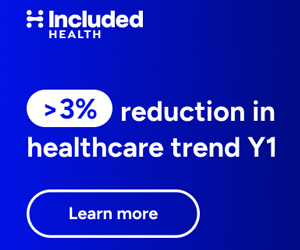By MICHELLE RONAN NOTEBOOM

Athenahealth Pushes Further Into the Inpatient World
Beth Israel Deaconess Medical Center partners with athenahealth to enhance its homegrown in-patient EHR. Athenahealth is buying Beth Israel’s clinical applications, which it will enhance and rebrand as athenaNet. The purchase comes just a few weeks after athenahealth’s purchase of RazorInsights, an EHR platform for rural and community-based hospital.
Never underestimate Jonathan Bush’s ability to disrupt the HIT world. Athenahealth may be a little late to the in-patient EHR party, but they wouldn’t be the first company to successfully transition from an ambulatory-only vendor to an enterprise vendor: Epic, of course, got its start as a provider of ambulatory solutions.
ONC Offers $28 Million to Advance HIE
The ONC will award $28 million in grants to advance the adoption and use of interoperable HIT tools and services to support HIE.
The announcement coincided with the ONC’s annual meeting – which reportedly focused heavily on interoperability issues – and on the heels of the agency’s release of its draft HIT interoperability roadmap. Though it’s still early, “interoperability” seems to be taking an early lead as this year’s top HIT buzz word.
MGMA Asks CMS to Reduce Portal Duplication
The MGMA asks the federal government to consolidate its reporting programs and eliminate its use of multiple Web portals for physician reporting.
MGMA says its best: “it makes not practical sense to have multiple systems which create unnecessary work by requiring duplicative registration with separate usernames and passwords for physicians and practices to access reports or report information pertaining to Medicare Part B programs.”
FDA Recommends Minimal Oversight for Medical Devices
The FDA finalizes guidance on data transmissions from medical devices, saying it doesn’t intend to regulate software that receives, transmits, stores, or displays data due to the low risk to patients.
That’s good news for mHealth developers and enthusiasts, who had been concerned that too much regulation might spur continued innovation in the space.
Wheeling and Dealing
- CareTech Solutions wins an eight-year agreement with Maryland’s Adventist HealthCare to provide outsourced IT services.
- Boulder Community Health selects Voalte’s smartphone mobile communication technology for its acute-care hospital and regional trauma center facilities.
- Lehigh Valley Health Network’s 200 outpatient offices go live this month on Epic as the first phase of the health system’s $200 million implementation. LVHN’s regional competitor St. Luke’s University Health Network will also be switching to Epic at a later date.
- Gulf South Quality Network in Louisiana selects Medecision to build a data warehouse based on Medecision’s Aerial platform.
Show Me the Money
- Athenahealth reports Q4 adjusted EPS of $0.58 versus the previous year’s $0.57 and beating analysts’ estimates of $0.39. Revenue was up 24%. Despite the strong performance, analysts note that revenue from Epocrates services fell 32% from the previous year, and, general and admin costs grew more than 50% as a result of increased headcount.
- McKesson posts Q3 EPS of $2.89, up from last year’s $1.48 and beating estimates of $2.62. Revenues grew 36.9% to $47 billion, beating estimates of $44.6 billion. Despite strong overall results, revenues from McKesson’s Technology Solutions segment fell 7.3% as the company continued its planned elimination of its Horizon hospital software product line.
- Vital Medicals, a developer of a smart glasses application for surgeons, raises $925 million from angel investors and the Stanford StartX Fund.
- Telehealth solution provider Kura MD secures $1.5 million from Moneta Ventures.
- PB Capital Holdings invests an undisclosed amount in EHR provider ITelagen.
- Under Armour acquires Enomondo for $85 million and MyFitnessPal for $475 million, establishing the company as the “largest digital fitness community” reaching more than 120 million users.
- Workflow automation software provider Aventura closes a $14 million Series C financing round co-led by Safeguard Scientifics and Merck Global Health Innovation Fund.
New Blood
- Kaiser Permanente names Richard (Dick) Daniels EVP/CIO. Daniels has served as interim CIO since September 2014; previously he was SVP of enterprise shared services for Kaiser.
- Former Epic executive Dave Cassel joins Healtheway, a nonprofit collaborative focused on advancing interoperable HIE, to lead the company’s Carequality initiative.
- RemitData appoints Laura Hescock (Public Consulting Group) director of strategy and operations and Stacie Bon (Rodgers Townsend) senior director of marketing, and, promotes Jason Whiteaker from director of sales to VP of partner strategy.
- Specialty surgical hospital network Coordinated Health names Greg Flanagan, former COO for Advanced Health, CIO.
Etcetera
- A spokesperson for New York City Health and Hospitals Corporation attributes its use of EHR for protecting the health system from record loss after a fire destroyed a warehouse that housed duplicate copies of archived patient records.


















